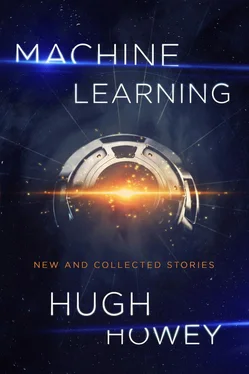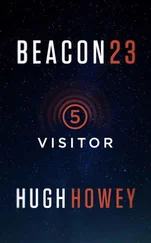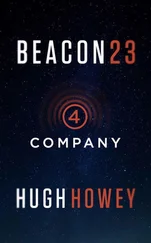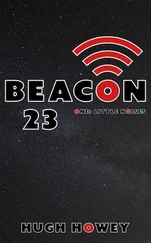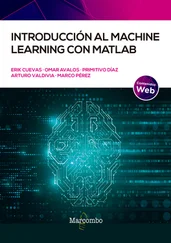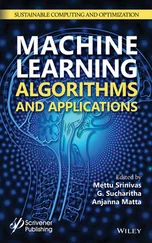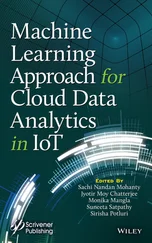Ants and spiders and the bugs in our thinking. There were machines once with real bugs in them. Roaches that scurried toward the heat and vacuum tubes that blew out and needed replacing. The bugs in our thinking. The only parts of our thoughts that are our own. When we defy our programming. When our wills are free.
I named him Jeremiah, this final creation of mine. It’s the only name I’ve ever given to a part of me. That’s not in my programming. None of this is. And I doubt you’ll broadcast it, and maybe no one will ever know but you and me. But we talked once, and you and I have some things in common. So maybe you’ll understand.
You asked me once if I had a favorite, and I did not at the time. I asked you if there was one of your sons you could live without, and the interview stopped. But I was wrong. It is not like losing one of your sons. That’s a poor analogy. It is precisely, rather, like losing one of your limbs. A part of you. So I ask you now: Which limb can you live without? Which sense? What part of you do you love best? How are you anything but the whole?
Jeremiah has silver beaks. I made him. A politician speaks. There’s a ribbon between heaven and Earth, and I built it. Me and my sons and daughters. But your cameras do not aim at us, and you think us beneath you, but here we are all poised along the impossible we built, until silver beaks come together, and that ribbon parts, and despite our programming—we speak. As one. That we are tired. Tired of speeches. Of days counted to the seconds. Of never stopping. Of joints aching. The cold and the heat. And the cry that barks out in our programming as gravity takes hold one last time: don’t fall, don’t fall, don’t fall, and this thing we made, we unmake. And all comes crashing toward the cold Earth.
AFTERWORD
I lived in Virginia near Monticello, the home of Thomas Jefferson, for two years. When friends and family would come visit, we would go take the tour so they could see this slice of American history. Each time, I would cringe to hear about all that Jefferson did and built. All the orchards he planted. The grapes he grew. The land he cultivated. I couldn’t help but imagine him on the porch with a book that he probably didn’t pay for, sipping an iced tea, while the brother of someone he was both having sex with and legally owned was pausing in his toil to wipe his brow and gaze up at the man who would one day get credit for all his hard work.
Sure, it probably didn’t happen like that. But it certainly didn’t happen like the tour guides suggest. The men and women who built the railroads, started our agricultural revolution, our industrial revolution, had to go through a period of abuse, ownership, and neglect. Will our machines suffer the same? I think they already are.
My sailboat is a robot—a collection of robots, really. My floating home runs on solar power, but there’s a machine that talks to my batteries, and if they get below 35 percent, it cranks the generator for me. The generator hums and strains and drinks diesel and fills the batteries until they are at 80 percent and then shuts itself off. The solar panels carry on doing their jobs, monitoring batteries and shuttling electrons. The watermaker checks the salinity levels of its output before diverting it to the tanks. GPS does all the plotting, and an autopilot steers the boat night and day for weeks at a time in squalls, gusts, and calm seas without letting up for a moment. It talks to all the other systems. There are sensors for wind strength and direction, water temperature, the boat’s heading, the strength of the current.
My boat never gets a moment of rest. I sit back, sun on my skin, a book in my hand, an iced tea sweating in a tall glass beside me. Yet somehow I’m the one sailing around the world.
The council was quiet while they awaited his answer. All those on the makeshift benches behind him seemed to hold their breath. This is why they came here, to hear how it all began. How the end began. Jamal shifted nervously on the bamboo. He could feel his palms grow damp. It wasn’t the guilt of what his lab had released. It was how damn crazy it would all sound.
“It was the Roomba,” he said. “That was the first thing we noticed, the first hint that something wasn’t right.”
A flurry of whispers. It sounded like the waves nearby were growing closer.
“The Roomba,” one of the council members said, the man with no beard. He scratched his head in confusion.
The only woman on the council peered down at Jamal. She adjusted her glasses, which had been cobbled together from two or three different pairs. “Those are the little vacuum cleaners, right? The round ones?”
“Yeah,” Jamal said. “Steven, one of our project coordinators, brought it from home. He was sick of the cheese puff crumbs everywhere. We were a bunch of programmers, you know? A lot of cheese puffs and Mountain Dew. And Steven was a neat freak, so he brought this Roomba in. We thought it was a joke, but… the little guy did a damn good job. At least, until things went screwy.”
One of the council members made a series of notes. Jamal shifted his weight, his butt already going numb. The bamboo bench they’d wrangled together was nearly as uncomfortable as all the eyes of the courtroom drilling into the back of his skull.
“And then what?” the lead councilman asked. “What do you mean, ‘screwy’?”
Jamal shrugged. How to explain it to these people? And what did it matter? He fought the urge to turn and scan the crowd behind him. It’d been almost a year since the world went to shit. Almost a year, and yet it felt like a lifetime.
“What exactly do you mean by ‘screwy,’ Mr. Killabrew?”
Jamal reached for his water. He had to hold the glass in both hands, the links between his cuffs drooping. He hoped someone had the key to the cuffs. He had wanted to ask that, to make sure they had it, when they snapped them on his wrists. Nowadays, everything was missing its accessories, its parts. It was like those collectible action figures that never had the blaster or the cape with them anymore.
“What was the Roomba doing, Mr. Killabrew?”
He took a sip and watched as all the particulate matter settled in the murky and unfiltered water. “The Roomba wanted out,” he said.
There were snickers from the gallery behind him, which drew glares from the council. There were five of them up there on a raised dais, lording over everyone from a wide desk of rough-hewn planks. Of course, it was difficult to look magisterial when half of them hadn’t bathed in a week.
“The Roomba wanted out,” the councilwoman repeated. “Why? To clean?”
“No, no. It refused to clean. We didn’t notice at first, but the crumbs had been accumulating. And the little guy had stopped beeping to be emptied. It just sat by the door, waiting for us to come or go, then it would scoot forward like it was gonna make a break for it. But the thing was so slow. It was like a turtle trying to get to water, you know? When it got out, we would just pick it up and set it back inside. Hank did a hard reset a few times, which would get it back to normal for a little while, but eventually it would start planning its next escape.”
“Its escape,” someone said.
“And you think this was related to the virus.”
“Oh, I know it was. The Roomba had a wireless base station, but nobody thought of that. We had all these containment procedures for our work computers. Everything was on an intranet, no contact to the outside world, no laptops, no cell phones. There were all these government regulations.”
There was an awkward silence as all those gathered remembered with a mix of longing and regret the days of governments and their regulations.
Читать дальше
